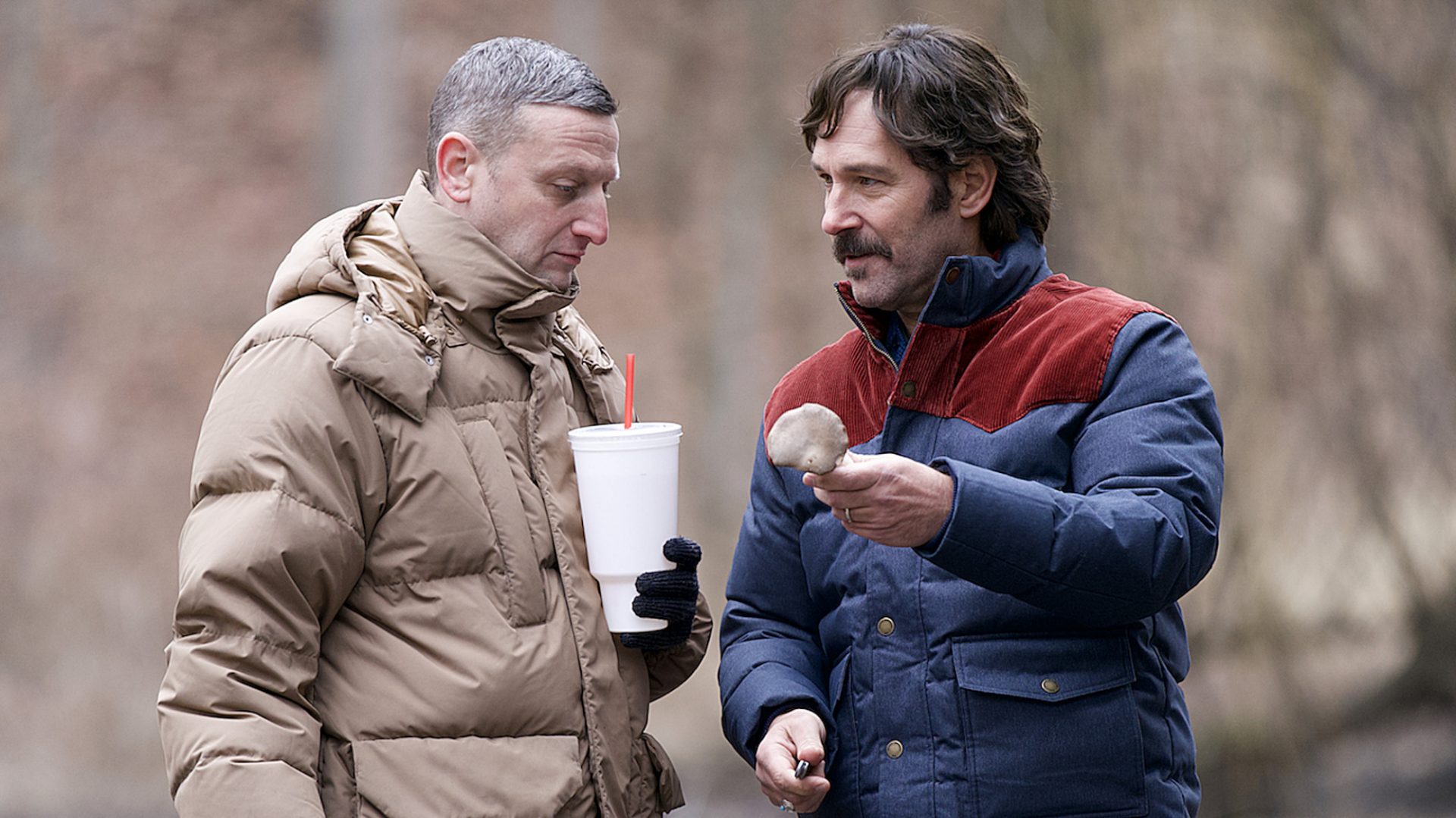The recent film Friendship affected me deeply. I mean, physically affected. I left the cinema feeling clammy, on edge and with a tightening in the chest.
The first words I uttered as I stepped blinking into the light were: “How did that get made?” This wasn’t a criticism, it was a genuine question. As soon as I got home, I fell into a Reddit rabbit hole where many similar thoughts about Friendship were shared. ‘What was that?’ ‘Why was that?’ ‘Why do I feel this way?’
It is, I feel, the most accurate representation of late-life male friendship I’ve ever witnessed. Not the exterior characteristics of male friendship, but what happens internally, flipped inside out and presented on screen.
The film involves Craig, an awkward man whose middle age is falling apart. His wife is about to leave him, his son is distant, and he’s evacuating the house and neighbourhood he loves (It’s never explained why his house is up for sale).
A flashy TV weatherman, Austin, moves in down the street. Despite his surface breeziness, Austin is as deeply insecure as Craig, but much better at masking. Craig totally falls for Austin, attempts to be his friend, tries way too hard and is soon ostracised. This sends Craig into a full-blown crisis and his wife into the arms of a firefighter.
Certainly, this representation of male relationships is somewhat overblown for comedic effect. Tim Robinson who plays Craig, can only really do one thing. It’s a magnificent thing, but all his characters on the sketch show I Think You Should Leave are somewhat similar. They shout and they break things. It often feels as if the character of Craig has wandered in from a completely different franchise. If you take Craig out, you have a pretty standard A24 psychological drama. But this just adds to the overall queasiness of the film, where the complex mysteries of male friendship are exposed brutally.
Suggested Reading


When will Quentin Tarantino shut the f*** up?
It reminded me of The Banshees of Inisherin, another film that dissects the intricacies of men trying to be friends and, like Friendship, reveals that at their heart they tend to skew quite juvenile. In Banshees, one friend suddenly decides he no longer wishes to be friends with another friend. No real reasons are ever established. Just toddler-level pettiness and contrariness. Once more, this sudden schism spirals dramatically until one of the characters has far fewer fingers and a beloved donkey is dead.
Again, it’s an exaggerated vision of the way men interact, but it speaks some truth. It often feels as if our friendship patterns are established in the playground and never really evolve from there. It’s one of the reasons men find it so difficult to make friends later in life. It all feels a bit silly and awkward. And why we tend to cling to the friends we have and try not to question why we’re friends with them in the first place.
This is illustrated beautifully in Rónán Hession’s wonderful novel Leonard and Hungry Paul (soon to be a BBC series). It tells the tale of two quiet men who attempt to sidestep the overt difficulties of life. Their friendship revolves around board games, in-jokes and an avoidance of anything too emotional, a formula established early in life.
A similar line is also taken by Jeremy Cooper in his magnificent novel Brian. Again, Brian is a quiet, isolated man who suddenly decides to join a friendship group of film buffs at the NFT in the 1980s. Even after decades of seeing these same men night after night at the movies, he barely knows anything about them and when he tries to get a little closer, the results tend to be disturbing. Both books are sweet, stoic and utterly heartbreaking.
What these works emphasise are the myriad ways that many older men struggle to give or receive friendship. It’s been identified as a “friendship recession”, the problem of male relationship groups dwindling with age, that can lead to depression, anger and even suicide. There are lots of reasons cited for it, the inability to make new friends being a major one, but it’s rarely reflected in popular culture, leading to a further lack of understanding.
But it does seem that the issue is starting to be addressed in work such as Friendship, Brian and Leonard and Hungry Paul. The more men see their struggles with friendship reflected in culture, the more they might be willing to talk about it or tackle it. As these works show, male friendship is brittle, convoluted and daunting. It’s growing recognition on screen and print could help to curtail a growing, devastating mental health crisis and help men find themselves, and each other. But just be wary of TV weathermen in wigs.
Dale Shaw is a television and radio writer, journalist, screenwriter and musician



